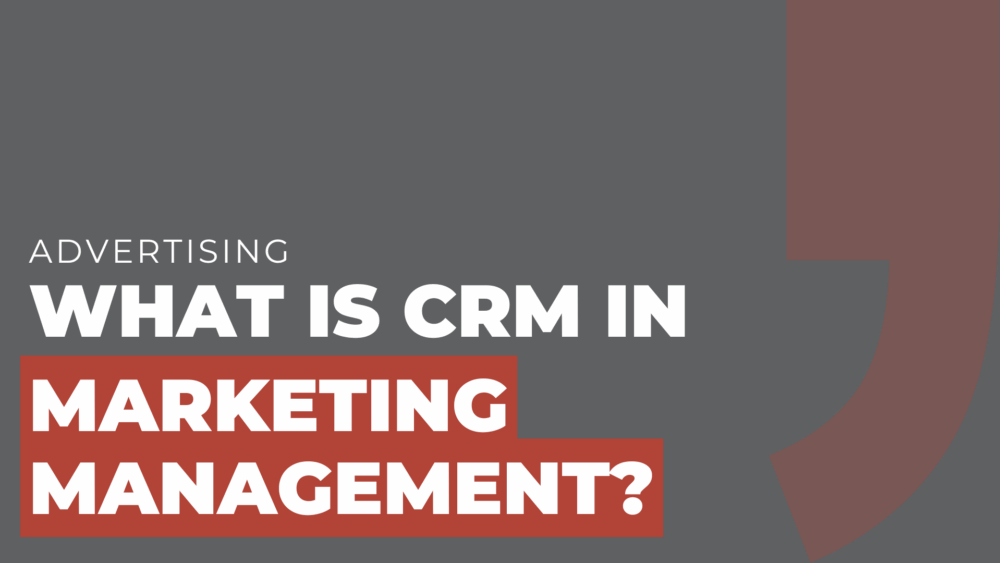Are you new to CRMs?
If you’re wondering, “What is a CRM in marketing management?,” let’s get you up to speed.
A CRM in marketing management is a tool that helps businesses keep track of their customers, organize their data, and manage relationships.
It makes it easier to run campaigns, follow up with leads, and understand what customers want.
This helps businesses build stronger brand connections and reach their marketing goals.
As marketing strategies have changed over time, CRM systems have grown into must-have tools, offering smarter, faster, and more personalized ways to connect with customers.
Let’s break down how a CRM works, its key features, and why every successful director relies on it.
Understanding CRM: The Marketing Director’s Secret Weapon
Think of CRM as the GPS for your marketing efforts.
Whether you’re navigating Atlanta’s bustling marketing landscape or planning a national campaign, a CRM gives you a clear view of the customer journey and helps you stay on course.
A CRM system consolidates customer data, from emails and social media interactions to sales histories, into one easy-to-use platform.
This kind of visibility allows marketing directors to move quickly and make informed decisions, no matter the complexity of their campaigns.
Key Features of CRM Systems for Marketing Directors
Let’s talk about what makes CRMs so awesome.
Centralized Customer Data: The Foundation of Great Campaigns
Gone are the days of juggling spreadsheets or scattered notes.
A CRM organizes every interaction with customers — from website visits to sales calls — into a single system.
For marketing directors, this means campaigns can be targeted more effectively.
For example, if you’re running a local promotion in Atlanta, a CRM can segment customers who’ve already shown interest in similar campaigns, giving you a head start.
Automated Campaign Management: Streamlining the Workload
Imagine setting up a marketing campaign that practically runs itself.
That’s the beauty of CRM automation.
From email marketing to lead follow-ups, automation keeps things moving behind the scenes while you focus on strategy.
Marketing directors can use CRM systems to send personalized messages at scale, ensuring that every customer interaction feels relevant and timely.
Analytics and Reporting: Numbers That Speak Your Language
Numbers tell the real story, and CRM analytics help you write the next chapter.
With dashboards and easy-to-read reports, marketing directors can measure campaign success and make adjustments on the fly.
For instance, if a social media ad isn’t driving clicks, CRM data can point to what’s missing—helping you course-correct before the campaign ends.
Enhancing Customer Relationships: The CRM Advantage
Marketing today is about more than selling; it’s about building connections.
A CRM system allows marketing directors to engage with customers in meaningful ways.
For example, let’s say a customer downloads a whitepaper from your website.
A CRM tracks that interaction, allowing you to follow up with a personalized email offering additional resources.
This thoughtful approach turns one interaction into a long-term relationship.
As marketing has changed over time, CRM systems have adapted too.
Today’s tools don’t just store data — they predict customer behavior, recommend strategies, and even automate parts of your workflow.
For marketing directors, these advancements mean fewer headaches and more time to focus on creative problem-solving.
Best Practices for Using a CRM in Marketing Management
Ready to use a CRM? Here are somethings to consider:
Set Clear Objectives:
Every CRM strategy starts with a goal. Whether it’s improving lead conversion rates or strengthening customer loyalty, having a clear target keeps your efforts focused.
Train Your Team:
A CRM is only as good as the people using it. Make sure everyone on your team understands its capabilities and how to make the most of them.
Monitor and Adapt:
Marketing is never static, and neither is your CRM strategy. Regularly review what’s working and make changes as needed to stay ahead of the curve.
Measuring CRM Success: What Marketing Directors Should Track
How do you know if your CRM strategy is working?
Here are a few key metrics to watch:
- Customer Retention Rates: Are customers coming back?
- Lead Conversion Rates: How many leads are turning into paying customers?
- Campaign ROI: Are your marketing efforts delivering the results you need?
Tracking these KPIs gives marketing directors a clear picture of how their CRM is contributing to overall success.
At the End of the Day
A CRM system may be your foundation for smarter, faster, and more meaningful marketing.
Whether you’re planning campaigns for a national audience or focusing on Atlanta’s competitive market, a CRM equips you to handle the complexities of modern marketing with confidence.
As marketing directors navigate an ever-changing landscape, CRMs can provide the clarity and strategy needed to build successful campaigns — and even stronger relationships.
Have more questions about marketing management?
We’re here to help.
Website: https://mocktheagency.com/
Phone: (470) 225.6814
Email: hello@mocktheagency.com
Address: 247 14th St NW, Atlanta, GA 30318


Comments are closed.